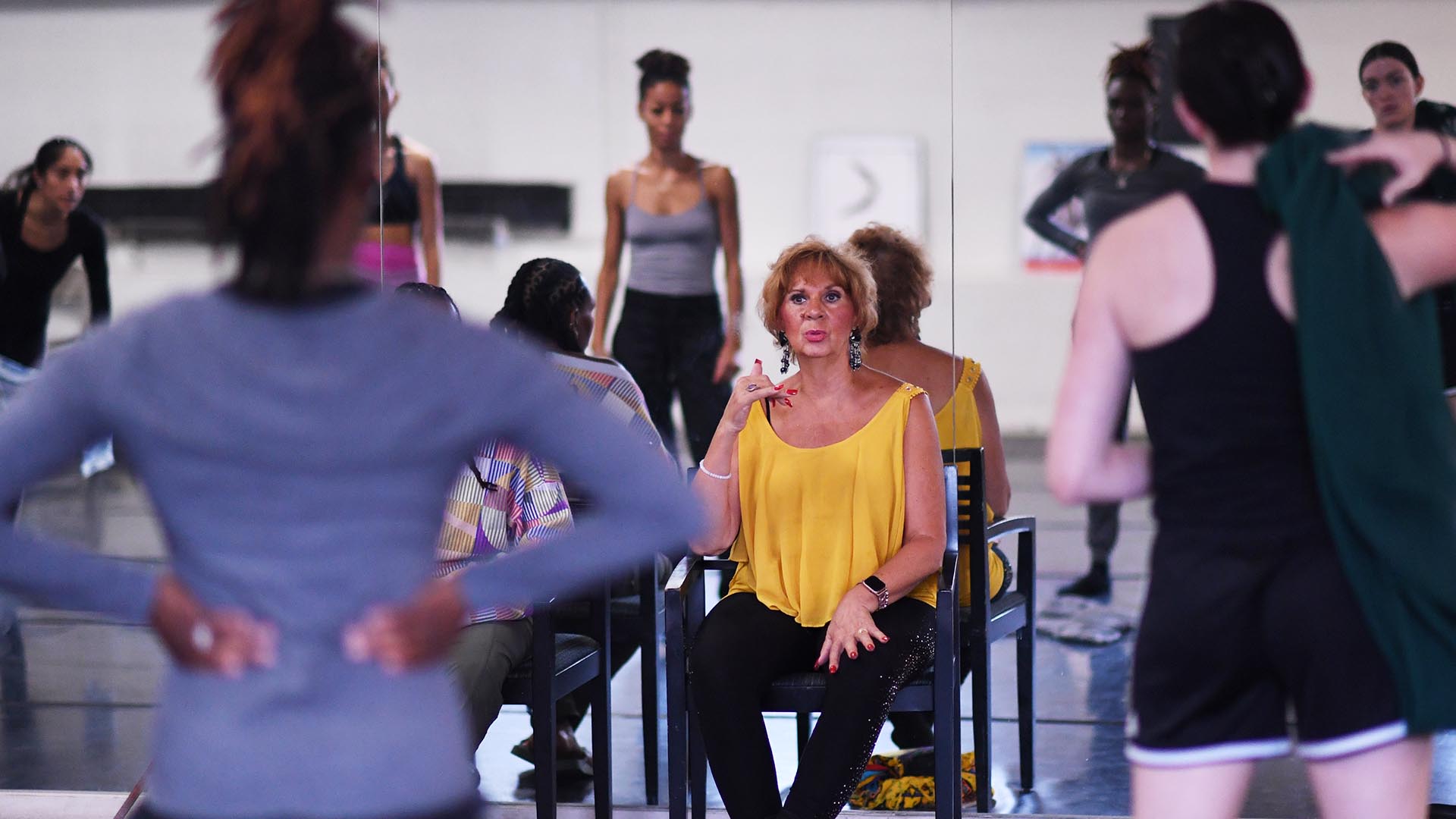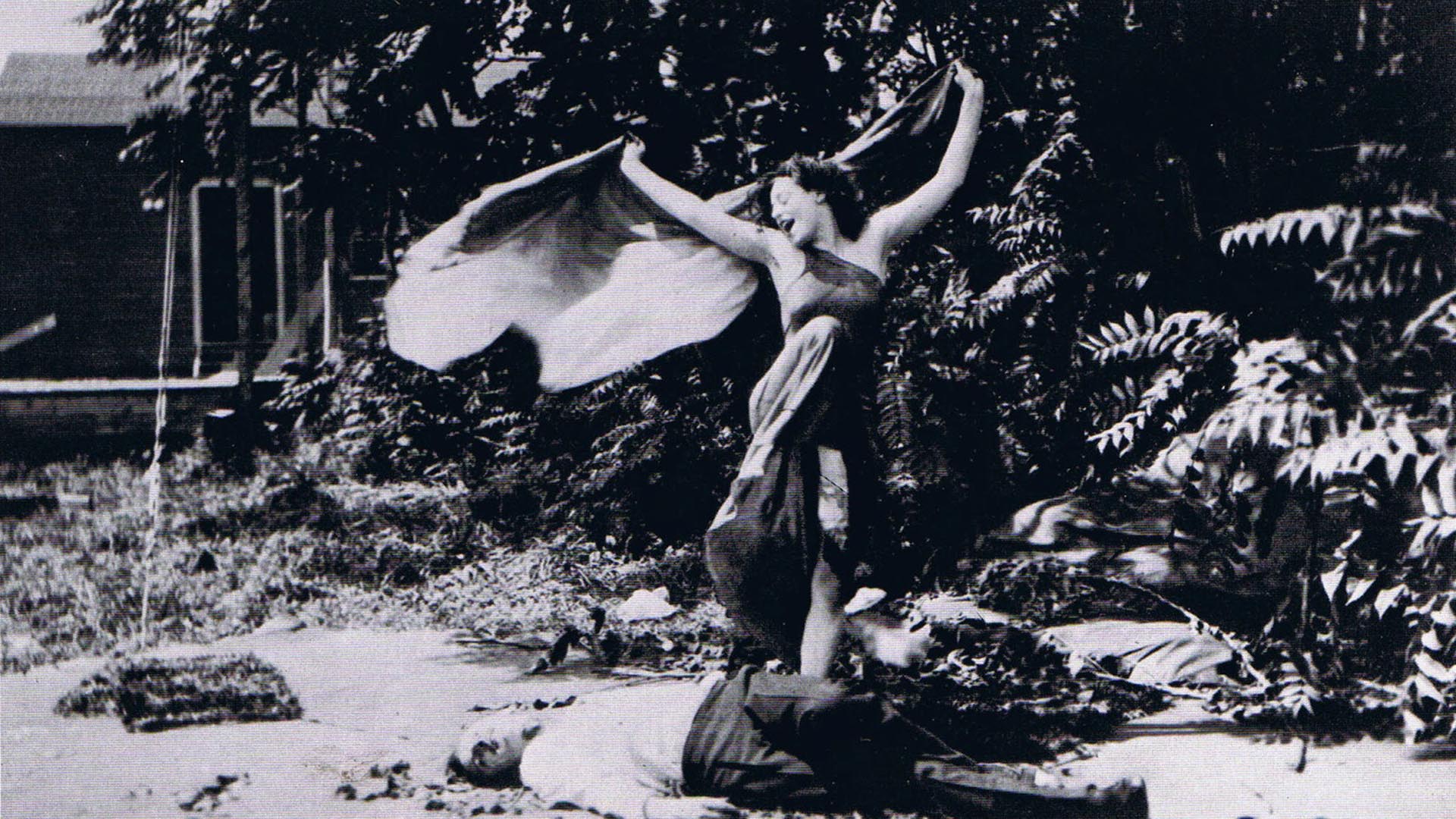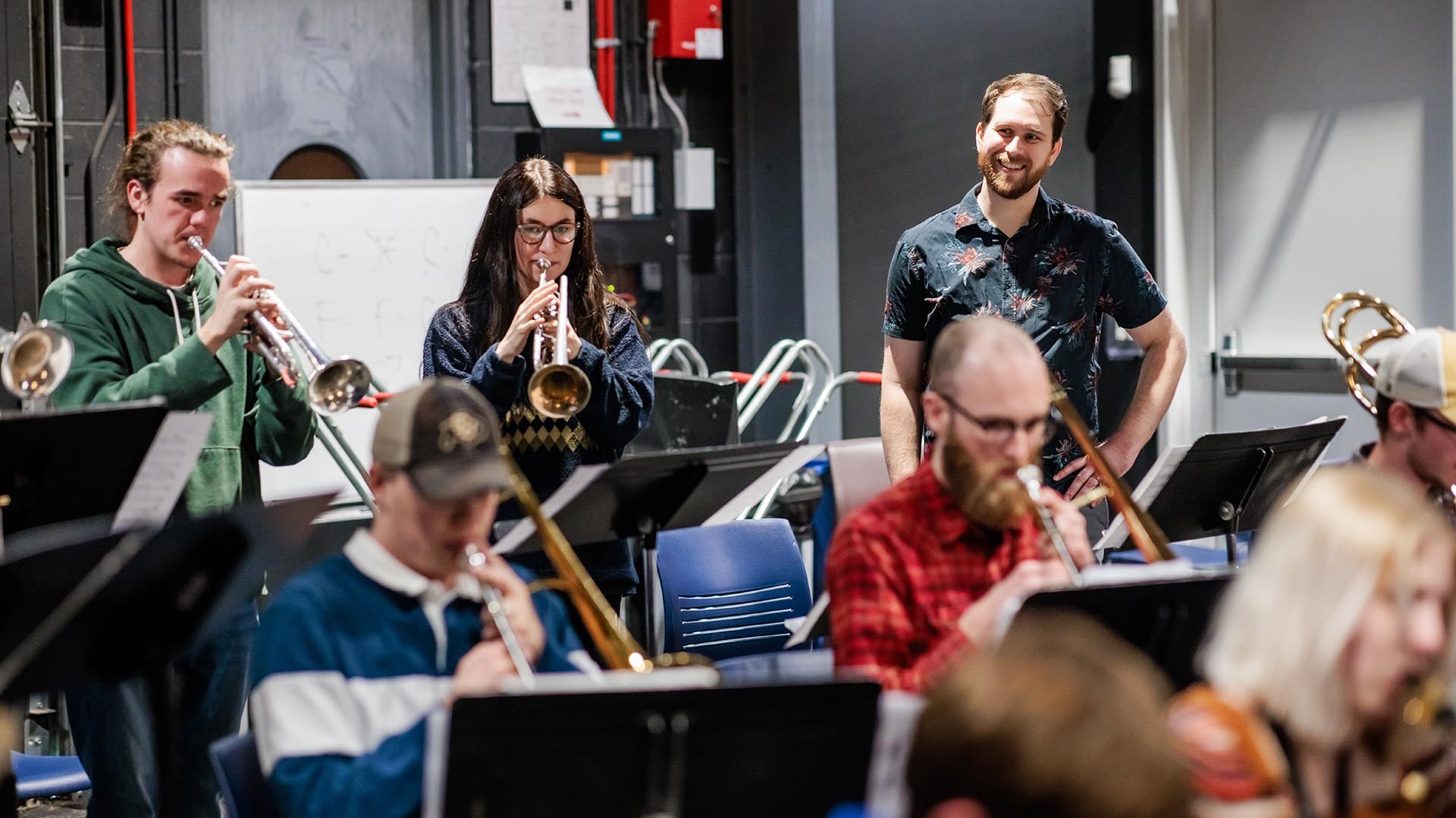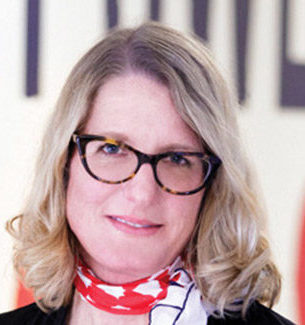Creative solutions enhance lives
Access Gallery’s Damon McLeese is thinking creatively about using art to change the lives of Coloradans with disabilities.
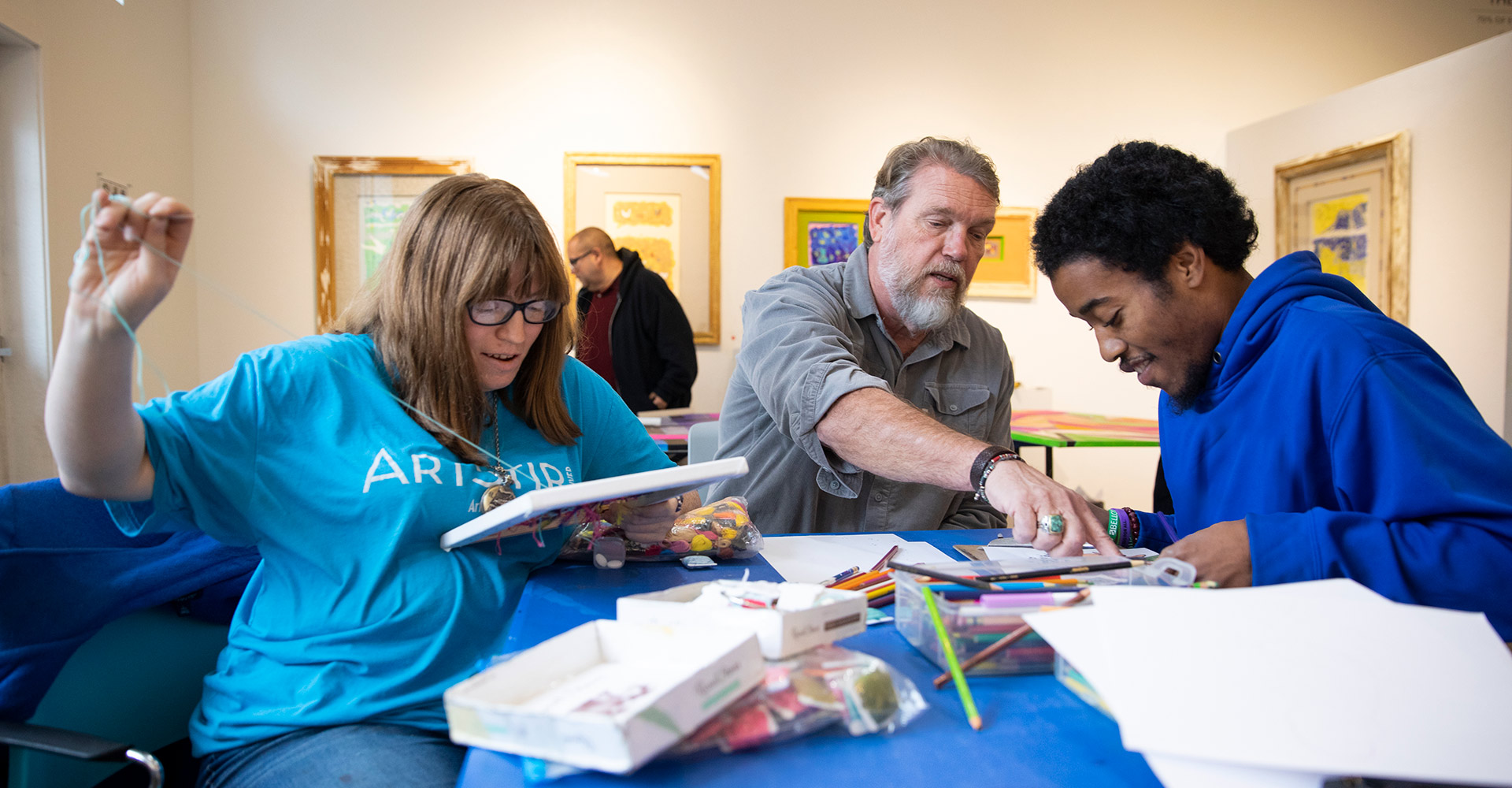
Creativity can change lives.
It’s a simple motto that has served Damon McLeese well during his 22 years as the executive director of Denver’s Access Gallery, an inclusive nonprofit that helps people living with disabilities express themselves, gain job skills and earn an income by making art.
Tucked inside a humble exhibit space at 909 Santa Fe Drive in Denver’s Art District on Santa Fe, Access Gallery is home to works by a rotating group of adults with intellectual, developmental and physical disabilities, including blindness and deafness.
Lifting up Coloradans living with disabilities has been a lifelong passion for the 1988 graduate of Metropolitan State University of Denver. And thanks to McLeese’s creative thinking, Access Gallery isn’t just helping people with disabilities discover their creativity; it’s also helping them make money by selling their works.
“I realized that it’s great to teach someone with disabilities about Picasso, but if they can’t afford the bus fare to get here, it doesn’t matter,” McLeese says. “The light bulb went off: We can hire the students to make artwork.”
McLeese and his staff of four help Access Gallery’s artists learn how to create and sell their works, big and small. Their artists start by selling small pieces no bigger than a business card through a vintage cigarette-machine-turned-art-dispenser called the “Art-O-Mat.” Bigger pieces are curated by McLeese for sale and line the gallery’s walls.
The gallery also helps artists earn money through corporate art commissions: Students create original works that support a company through their respective letterheads, logos and photographs of the company’s buildings. Corporations get unique and original art, and their money goes right back to the gallery and its artists, McLeese explains.
McLeese estimates that the gallery sold $70,000 worth of art in 2018, with 70% of the proceeds from each work paid to the artist. The remainder is put toward gallery overhead and materials.

Access Gallery’s history of helping people with disabilities through art dates to 1974, when Ambassador Jean Kennedy Smith founded the national movement called Arts for the Handicapped; the organization later morphed to Very Special Arts, then VSA and finally the Department of VSA and Accessibility at the John F. Kennedy Center for the Performing Arts. As the group reorganized, many VSA locations, including Denver’s, became their own entities. McLeese decided on the name “Access” because it’s a critical need.
It was a lack of accessibility that inspired McLeese to become an advocate for people with disabilities in the first place. Raised by an artistic single mother who didn’t have enough money to send him to summer camp, McLeese, then 13, volunteered for the Muscular Dystrophy summer camp. There, he struck up a friendship with a boy in a wheelchair whom he also helped up and down the stairs. Back then, there was no Americans With Disabilities Act.
The experience sent McLeese down a path dedicated to providing disabled people with equal access to things such as buildings, employment and art programming. He credits MSU Denver with helping translate that passion into a career.
As a student in what was the precursor to the University’s Individualized Degree Program, he was able to create his own degree in Community Service Development, which he earned in 1988. McLeese worked for the Colorado AIDS Project and Special Olympics before landing at Access Gallery in 1997.
Though he’s been at the gallery for nearly a quarter century, McLeese is constantly thinking of ways creativity can change lives.
He’s also excited for Access Gallery’s next big exhibit, “I, Robot,” which will celebrate the 70th anniversary of Isaac Asimov’s acclaimed science-fiction novel. The show will revolve around all things robotic, and he can’t wait to see his students get imaginative with the theme.
“It’s amazing to me how many people don’t think they’re creative,” McLeese says. He beseeches anyone, especially his students, to explore their inventive side. And for those who want to attend “I, Robot” or stop by to purchase a piece of art, Access Gallery is accessible to everybody.


